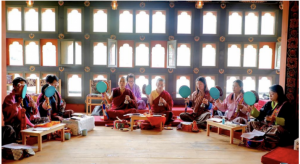The West and China are both in furor over the death of little Wang Yue, the girl who was run over twice and had eighteen people pass by her in callous indifference until finally being rescued. Reactions range from the very sensible to the simply ridiculous. The discourse has become confused and toxic. Unhelpful (and false) assertions about how Chinese are fundamentally immoral, or horrible soulless people, are little more than justifications for Yellow Peril alarmism. They also miss out on the fact that the greatest indignation about Yue’s death is coming from within China itself. Look no further than the astronomical flurry of posts on blogs and discussion forums on Weibo and other social sites, where most of the harshest comments about Chinese society come from Chinese themselves. Of course, one could dismiss this as all words with no action. This is partially true, but we should be careful in asserting that 1.3 billion people have no moral compass or do not care about life. Extraordinary claims require truly extraordinary evidence.
So much for that toxic nonsense. But there is an important assertion in the Anglophone world that is completely correct: China needs serious, sustained reflection and practical steps to address what is nothing less than a wake-up call. We need to strike a cautious middle way between condemning the incredible callousness – or perhaps social fear – of those who failed to save Yue, and the intricate social conditions that may have led to this mind-boggling apathy (見死不救). There is a lot to answer for on behalf of Yue: first, why did the parents let a toddler wander off alone? Secondly, why did all eighteen people pass by without even so much as walking over? And how could two drivers have not noticed that he ran someone over? We cannot offer excuses. We need to offer what was truly lacking in this fiasco: active compassion.
What can we do in the face of so-called “anti-Good Samaritan” incidents? There is the perception that China is an anti-Good Samaritan society, with several high-profile incidents of people who have helped those in need being sued or taken to court by the very individuals they aided. Practically, if we are to get anywhere with all our talk about “improving” moral education or instilling virtue, we need a religious change, supported by all the religious communities of China. Religious faith overpowers our conventional sensibilities. Faith challenges what we hold to be worldly wisdom, and the worldly wisdom of those wary of “anti-Good Samaritan” cases is that it is better not to help because no one wants to get involved with a bleeding, wounded toddler, or risk being sued or wrongly prosecuted.
The truly religious person has this reply: Would the Good Samaritan of Jesus’s parable have thought twice about giving hospitality to the beaten man on the side of the road, let along a little girl who was run over twice? When the Bodhisattva was a rabbit in a previous life, he couldn’t offer food and threw himself into the fire so his own roasted corpse could be enjoyed. Would the Buddha or Christ have feared being taken to court for their selflessness?
The cornerstone of Buddhism is compassion. Dr. Michael Barnes SJ could not have put it better: one becomes properly a person by gaining that insight or wisdom which is practiced as compassion for all sentient beings. One could argue that those passersby did not directly harm Yue, since it was the drivers who ran her over. But this is completely untenable. There was a very real harm inflicted on Yue: the wound of apathy. How terrified, distressed, and heartbroken the little toddler must have been, to writhe in agony at her crushed bones and bleeding organs while watching adult after adult – the seniors that Chinese culture teaches youngsters to respect so much – walk by, glance at her bleeding body, and then continue on their merry way. How betrayed she must have felt, and how unfathomable her sense of utter abandonment and despair must have been. And we dare to say that those passersby did not directly harm Yue? There was no insight, no wisdom, no compassion in what they did or did not do.
China, with such religious diversity, should have had plenty of spiritual resources to bring out the best in us, from Confucian ethics to Christian love. But our temples, churches, mosques and synagogues may be said to have not completely fulfilled their promise of creating a friendlier, more compassionate, more welcoming, and more loving society, where innocent, vulnerable children like Yue would have had the right to grow up happily. Or at least, she would have had the right to grow in a society where all children would be protected, no matter what the social circumstances.














